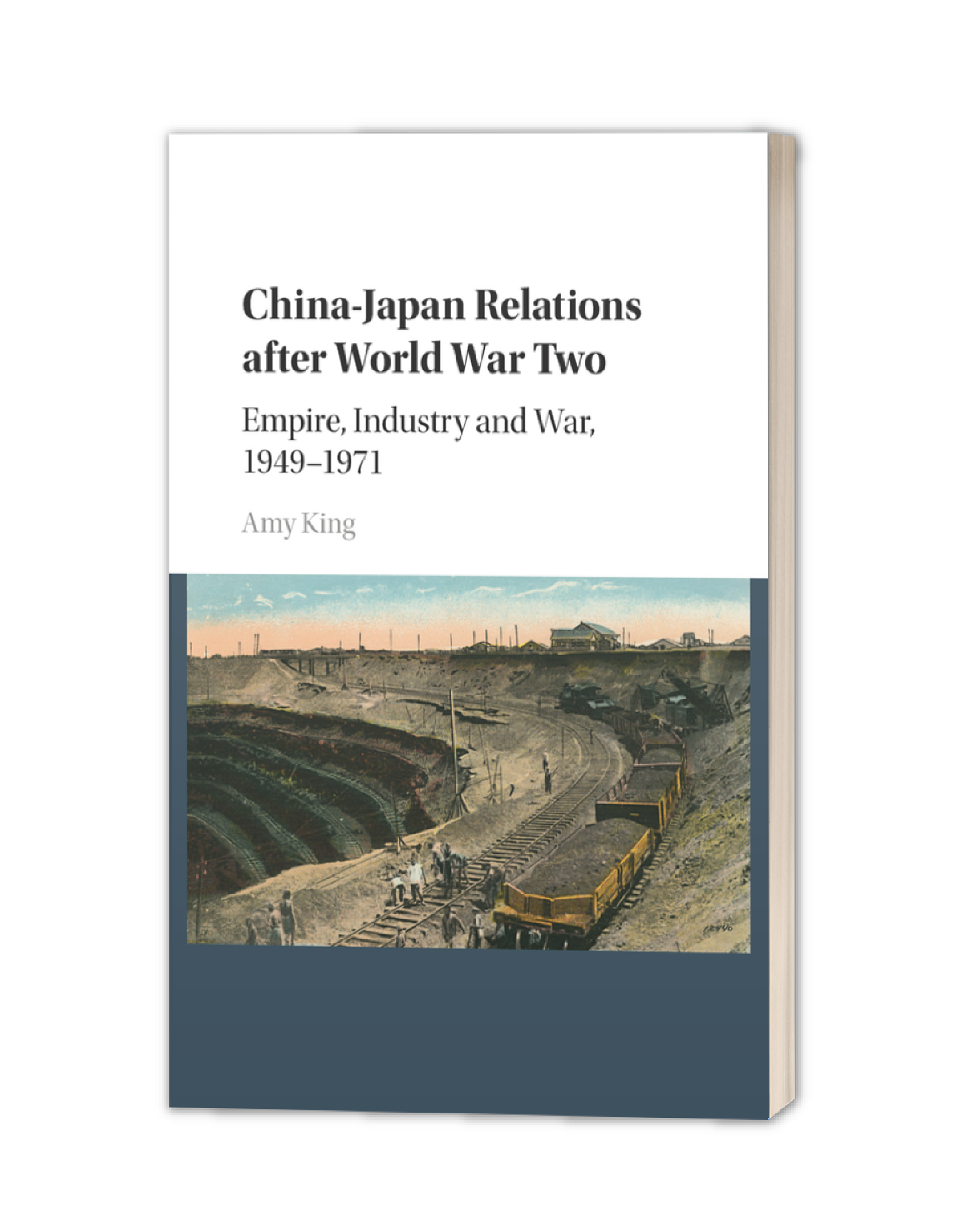
Featured Book
China-Japan Relations after World War Two: Empire, Industry and War, 1949-1971
Cambridge University Press, 2016
A rich empirical account of China's foreign economic policy towards Japan after World War Two, drawing on hundreds of recently declassified Chinese sources. Amy King offers an innovative conceptual framework for the role of ideas in shaping foreign policy, and examines how China's Communist leaders conceived of Japan after the war.
King argues that China's leaders saw Japan as a symbol of a modern, industrialised nation, and Japanese technology and expertise as vital in developing China's economic and military power.
For China and Japan, the years between 1949 and 1971 were not simply a moment disrupted by the Cold War, but rather an important moment of non-Western modernisation stemming from the legacy of Japanese empire, industry and war in China.
-
Amy King, ‘Reconstructing China: Japanese technicians and industrialization in the early years of the PRC’, Modern Asian Studies, 2016, Vol. 50, No. 1, pp. 141-174.
A Chinese-language review of my ‘Reconstructing China’ article can be found at: '日本专家与新中国初期的经济建设', 文化纵横 [Beijing Cultural Review], 2017年2期。
-
‘Japan-China Relations and the Implications for Australia,’ Australia-China Relations Institute Podcast, 7 February 2019.
‘China's Evolving Strategy Towards South Korea and Japan,’ Interview with the Australian Institute of International Affairs, 8 May 2017.
‘Sino-Japanese relations: old enmities and new rivalries’, Australian Institute of International Affairs, 27 February 2014 (with Amy Catalinac).
-
Amy King, ‘China-Japan: what comes next?’, Australia-China Agenda 2013, Australian Centre on China in the World, August 2013.
Amy King, ‘China and the lessons of the past’, East Asia Forum Quarterly, 2010, Vol.2 No.3, p. 34-35.
— BOOK REVIEWS
Chen Jian, Hu Shih Professor of History and China-US Relations, Cornell University
‘With the support of pioneering multi-archival research, Amy King's pathbreaking book has made a major contribution to our knowledge and understanding of the complicated dynamics and many previously little studied dimensions of Chinese-Japanese relations in the Cold War.’
Peng Er Lam, National University of Singapore, Pacific Affairs, 92(3), 2019: 573-575.
‘Amy King has written a brilliant book that illuminates a hitherto obscure but important phase in Sino-Japanese relations between 1949 and 1971… Disavowing a simplistic and bifurcated approach to analyzing Chinese foreign policy towards Japan as either a case of short-term “pragmatism” or a principled “ideological” approach, King looks at the crucial role of ideas…King’s primary source-based research is impressive indeed…her novel argument that the model state of Manchukuo (Northeast China) was a legacy of the Japanese Empire for Maoist China’s state-led, planned industrialization and rapid economic development.’
Quansheng Zhao, American University, The China Journal, 79 (January), 2018: 157-187.
‘Amy King’s new book China-Japan Relations after World War Two is an important addition to the field that we should welcome…Using empirical case studies, King demonstrates the critical role played by ideas in China’s Japan policy…the book is a timely addition to the existing scholarship, and it is particularly laudable that King has developed a conceptual framework for the topic relating to the tension between “China’s cognitive and normative ideas about Japan”’.
James DJ Brown, Temple University, Japan, International Affairs, 94(3), 2018: 691-692.
‘As Amy King convincingly argues in her new book on postwar China–Japan economic relations, the years 1949 to 1971 are far from being lost years…it is a valuable reappraisal of this often overlooked period in the China–Japan relationship and a useful reminder that the absence of official political relations does not necessarily preclude the development of important economic ties.’
Joyman Lee, University College, London, The China Quarterly, 229 (March), 2017: 249-250.
‘This is a valuable contribution to the study of Sino-Japanese and international relations of the early People’s Republic…King’s study benefits in no small measure from her timely research at China’s foreign ministry archives, which have been closed to researchers since 2014…this is a well-researched empirical study of China’s interactions with Japan in the early PRC.’

Credit: Flashpoint Labs
— MORE ABOUT ME
In my writing, research, and teaching I am interested in how China and Japan have historically understood their place in the world, and their role in shaping a changing international order.

— FEATURED PROJECT
How China Shapes International Economic Order
Through an Australian Research Council DECRA Fellowship and a Westpac Research Fellowship, I lead a research team investigating China’s role in shaping the post-WWII international economic order, and the contemporary legacy of China’s historical economic ideas.

